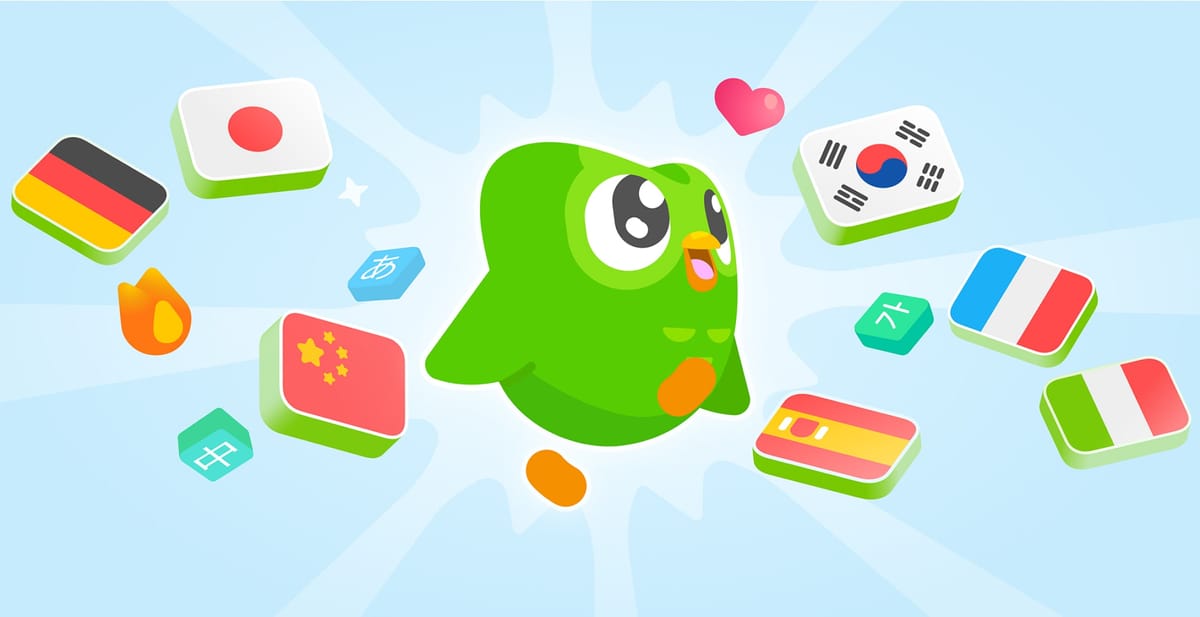The green owl is having quite the week. Just days after declaring itself an "AI-first" company to widespread criticism, Duolingo announced Wednesday its largest content expansion ever: 148 new language courses created with generative AI, more than doubling the platform's offerings.
Key Points:
- Duolingo has more than doubled its course offerings with 148 new AI-created language courses
- The launch coincides with controversial plans to replace contractors with AI and become an "AI-first" company
- New courses focus on widely-requested Japanese, Korean, and Mandarin across 28 user interface languages
On Monday, CEO Luis von Ahn told employees in a widely-shared email that Duolingo would "gradually stop using contractors to do work that AI can handle," sparking immediate backlash from users and industry observers. By Wednesday morning, the company was showcasing exactly what that AI-powered future looks like.
"Developing our first 100 courses took about 12 years, and now, in about a year, we're able to create and launch nearly 150 new courses," von Ahn said in the announcement. "This is a great example of how generative AI can directly benefit our learners."
The expansion primarily focuses on making seven popular non-English languages – Spanish, French, German, Italian, Japanese, Korean, and Mandarin – available across all 28 of Duolingo's supported interface languages. This dramatically expands access for speakers of languages that previously had limited learning options, particularly in Asia and Latin America.
Behind this rapid scaling is what Duolingo calls "shared content" – a system that allows the team to create a high-quality base course and quickly customize it for dozens of languages. "It used to take a small team years to build a single new course from scratch," said Jessie Becker, Senior Director of Learning Design at Duolingo. "Now, by using generative AI to create and validate content, we're able to focus our expertise where it's most impactful."
The new beginner-level courses (CEFR A1-A2) include immersive features like Stories for reading comprehension and DuoRadio for listening skills. DuoRadio offers podcast-like audio experiences featuring Duolingo's characters to help users tune their ears to native speech patterns, while Stories presents interactive narratives that test comprehension in context.
On one hand, this will undoubtedly democratizes language learning at an unprecedented scale – particularly for Asian languages like Japanese and Korean that were previously inaccessible to many user groups. On the other, it raises questions about quality and the human cost.
Duolingo has been moving in this direction for some time. In January 2024, the company cut approximately 10% of its contractors as part of an earlier shift toward AI-powered content creation. Those cuts primarily affected teams working on course creation and translation – precisely the functions now being handled by generative AI.
Von Ahn insists this transition isn't about replacing employees but "removing bottlenecks" and allowing staff to focus on "creative work and real problems, not repetitive tasks." However, his Monday email also noted that future hiring would only be approved "if a team cannot automate more of their work" – language that has drawn comparisons to similar policy shifts at companies like Shopify.
For language learners, the proof will be in the pedagogy. While AI can generate content at scale, the real test will be whether these rapidly-produced courses can match the quality and effectiveness of their human-crafted predecessors. Duolingo says advanced content will roll out in coming months, but the reception of these initial offerings could determine whether the company's AI-first gamble pays off.
As one of the most aggressive adopters of AI in consumer education, Duolingo is in the crosshairs of a wider industry debate: can AI truly replace human expertise in teaching, or are we sacrificing quality for quantity? With over a billion potential learners now having access to previously unavailable language combinations, the stakes couldn't be higher.
For now, the green owl is pushing forward into its algorithmic future – even if that means ruffling some feathers along the way.

